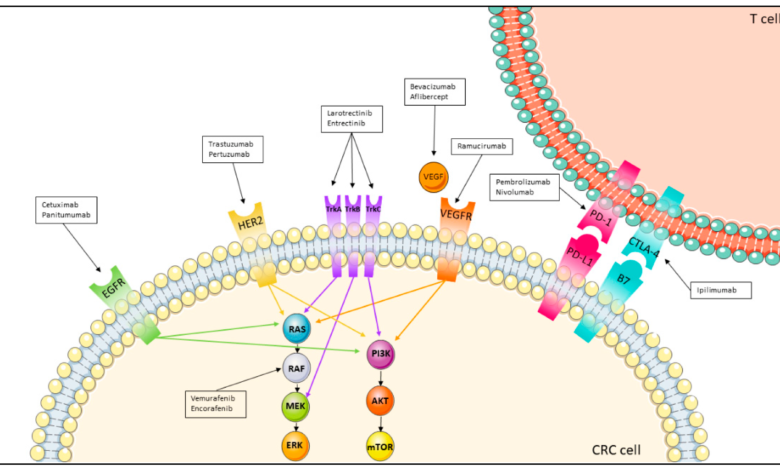
Bevacizumab: Transforming Cancer Care Through Targeted Therapy
For patients confronting various forms of cancer, targeted therapies offer a hopeful path forward—often complementing or even enhancing the effects of standard treatments. One such groundbreaking medication is Bevacizumab, widely recognized under multiple brand names including Avastin, Bryxta, Bevatas, Cizumab, Krabeva, Zybev, Abevmy, Advamab, Bevazza, and Bevacirel. Below is a comprehensive overview of what Bevacizumab is, how it works, and who might benefit from its use.
Understanding Bevacizumab
What Is It?
Bevacizumab is a monoclonal antibody designed to bind to and inhibit Vascular Endothelial Growth Factor (VEGF), a protein responsible for stimulating the formation of new blood vessels (angiogenesis). By blocking VEGF, Bevacizumab helps starve tumors of the blood supply they need to grow and spread.
How Does It Work?
- VEGF Inhibition: By targeting VEGF, Bevacizumab prevents new blood vessel formation (angiogenesis) in tumor tissue.
- Reduced Tumor Growth: With blood supply curtailed, the tumor’s growth rate can slow significantly, sometimes even shrinking the tumor’s size when paired with standard chemotherapy.
- Combination Therapy: Bevacizumab is often used in conjunction with chemotherapy drugs or other targeted therapies, enhancing overall treatment efficacy.
Common Brand Names
Though Bevacizumab remains the active ingredient, you may find various brands based on regional approvals and manufacturing:
- Avastin: The original and most internationally recognized brand of Bevacizumab.
- Bryxta, Bevatas, Cizumab, Krabeva, Zybev: Biosimilars offering comparable efficacy and safety profiles.
- Abevmy, Advamab, Bevazza, Bevacirel: Additional biosimilar options that may be chosen for cost considerations or availability in specific markets.
Each product must meet stringent regulatory criteria to ensure they provide the same therapeutic benefit as the reference medication, Avastin.
Conditions Treated
Bevacizumab has gained approval or is under investigation for multiple cancer types, including:
- Metastatic Colorectal Cancer
- Often combined with chemotherapy regimens (e.g., FOLFOX or FOLFIRI) to help extend survival and slow disease progression.
- Non-Small Cell Lung Cancer (NSCLC)
- Used especially in non-squamous subtypes, Bevacizumab can be paired with platinum-based chemotherapies.
- Breast Cancer (Metastatic)
- While approvals vary by region, certain patients with metastatic disease may benefit from adding Bevacizumab to their regimen.
- Glioblastoma (GBM)
- Helps manage aggressive brain tumors by inhibiting blood vessel formation that fuels tumor growth.
- Advanced Renal Cell Carcinoma
- Sometimes prescribed in combination with immunotherapy agents or other targeted drugs.
- Ovarian Cancer
- Used as first-line treatment in combination with chemotherapy and as a maintenance therapy in some settings.
Administration and Treatment Approach
- Delivery Method: Bevacizumab is given as an intravenous (IV) infusion. The frequency of infusions and total duration depend on the cancer type, stage, and overall treatment plan.
- Combination Therapy: Frequently administered alongside chemotherapy or targeted agents (like tyrosine kinase inhibitors) to maximize therapeutic impact.
- Monitoring: Patients generally receive routine imaging studies and labs to track treatment response and manage any potential side effects.
Potential Benefits
- Prolonged Survival: For many cancers, combining Bevacizumab with standard therapy can help extend the time before disease progression.
- Tumor Shrinkage: In some cases, patients experience a noticeable reduction in tumor size, which can alleviate symptoms and improve quality of life.
- Versatile Use: Approved for multiple advanced cancers, making it a flexible option for oncologists seeking to tailor treatments.
Possible Side Effects and Precautions
While Bevacizumab can offer substantial benefits, it’s important to be aware of possible side effects:
- Hypertension (High Blood Pressure)
- One of the most common side effects. Blood pressure monitoring and management with antihypertensive medications may be required.
- Bleeding or Hemorrhage
- Patients may experience an increased tendency to bleed, ranging from minor nosebleeds to more serious complications in rare cases.
- Gastrointestinal Perforation
- A rare but serious side effect; any unusual abdominal pain should be reported immediately.
- Impaired Wound Healing
- Because Bevacizumab impacts blood vessel formation, it can delay healing after surgery. Doctors often pause or schedule Bevacizumab treatments around surgical procedures.
- Kidney Function Changes
- Protein in the urine (proteinuria) or decreased kidney function may occur; regular lab tests can catch issues early.
Always inform your healthcare provider of any existing health conditions—especially cardiovascular problems or recent surgeries—and discuss all medications or supplements you’re taking to avoid harmful interactions.
Practical Considerations
- Stay Informed: Understanding how Bevacizumab works can help you better follow and adapt your treatment plan.
- Follow-Up Appointments: Regularly scheduled blood tests, imaging, and clinical evaluations will help your medical team assess effectiveness and adjust therapy if needed.
- Lifestyle Factors: Maintaining a balanced diet, staying hydrated, and engaging in light exercise (as tolerated) can support overall health during treatment.
- Support System: Emotional well-being is crucial. Seek support groups, counseling, or patient advocacy resources to help navigate the challenges of cancer therapy.
Final Thoughts
Whether under the name Avastin, Bryxta, Bevatas, Cizumab, Krabeva, Zybev, Abevmy, Advamab, Bevazza, or Bevacirel, Bevacizumab remains a pioneering agent in the fight against cancer. By cutting off the blood supply tumors need, it empowers both patients and doctors with an additional line of defense against advanced cancers. As with any potent therapy, careful monitoring and open communication with your healthcare team are key to maximizing benefits and minimizing risks.
Disclaimer: This article is for informational purposes only and does not replace professional medical advice. Always consult a qualified healthcare provider for personalized guidance regarding diagnosis, treatment options, and medication usage.
Keyword: Bevacizumab
Link: https://cbmeds.in/?product=cizumab-100-mg-bevacizumab

